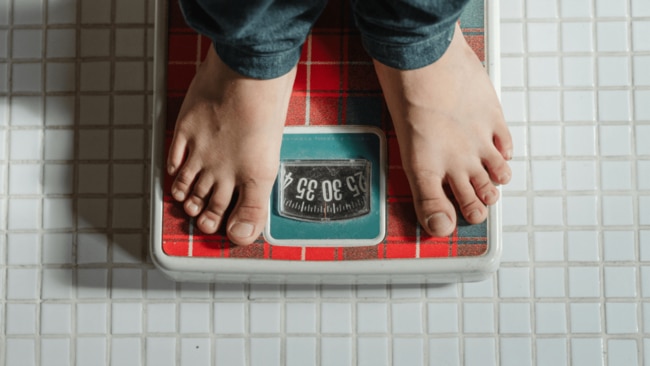The biggest mistake people make when trying to lose weight, according to a dietitian
You probably thought it was helping
Lifestyle
Don't miss out on the headlines from Lifestyle. Followed categories will be added to My News.
Passionate about constantly improving our weight loss tactics and health habits, experts are now urging us to reconsider one particular practice.
Whatever way you look at things, sustainable weight loss is reliant on two things: regular exercise and a healthy diet based on variety (not excess).
But, in addition to these, most people often employ a variety of additional tactics, from fasting hacks and calorie counting to pharmaceutical weight loss medications. The health and fitness space is constantly evolving, a reality that has some experts now urging us to ditch a long-held habit.
According to experts, constantly jumping on the bathroom scales and taking stock of your fluctuating weight might be hindering your efforts in the long term.
The problem with the bathroom scales
It’s widely assumed keeping track of your weight on the bathroom scales holds you accountable for your progress. But as experts explain, the well-practised habit of monitoring your weight can quickly escalate into an obsession. It’s then that your physical and mental health could be placed at risk.
Moreover, the average person’s weight fluctuates throughout the day based on factors such as water intake, meal times, stress levels and women’s menstrual cycles.
And while not every individual is at risk of developing an unhealthy obsession with their weight, another issue looms far greater.
While the numbers staring back at you on the scales are a useful way to gauge some aspects of weight loss, your weight in kilos and grams actually tells you little about your overall health.
“I tell people to throw away their scale all the time,” says registered dietitian and founder of The Kidney Dietitian, Melanie Betz.
“Weight is only one very tiny part of health as a whole. Health really is your whole physical and mental state of well-being. In our weight-centric culture, it is easy to fall into the trap of doing anything to get the number on the scale lower and ignore what it is doing to your mental or physical health,” she explains.

What to monitor instead of the scales
Warnings aside, sometimes stepping onto the scales is unavoidable (for example, the annual check-up at your GP). If you are required to weigh yourself by a health professional, consider requesting they keep the number to themselves.
Defining your health by a range of factors – such as how you feel, your progress with a fitness goal, or your overall energy levels – can be far more indicative of progress than any single number.
“The scale doesn’t differentiate between fat loss, water-weight loss or muscle loss,” adds Bess Berger, another registered dietitian specialising in PCOS and menopause.
“I have clients that get on the scale one or two times a day. I recommend they start weighing themselves less often by getting on the scale only every other day. After that, we can reassess from there. It’s more important for one to feel good in their skin, have a good mental state and have energy than what the number on the scale says,” Berger said.
Tracking kilos and calories represents an outdated view of weight loss – one we should all be liberated from. As a result, many experts are suggesting ditching scales entirely (or just hiding them away until you need to check how heavy your Europe carry-on bag is…).
“It can be incredibly freeing to completely remove weight from the equation. If you don’t even know how much you weigh, it can be easier to focus on more important ways to measure health, such as how your body feels or your lab results,” Betz says.
More Coverage
Originally published as The biggest mistake people make when trying to lose weight, according to a dietitian




